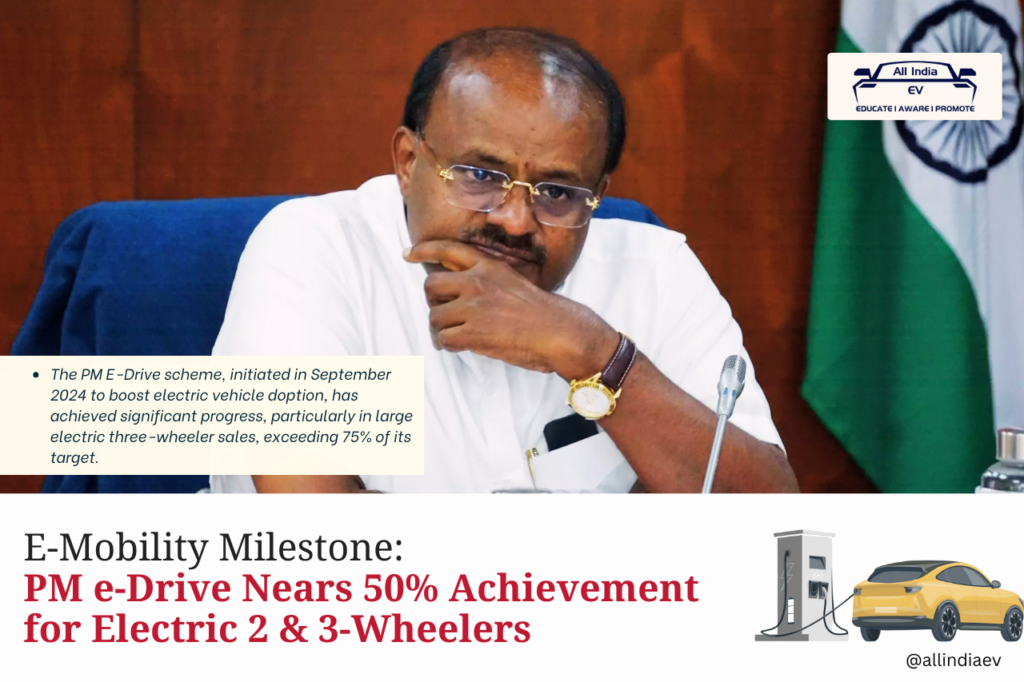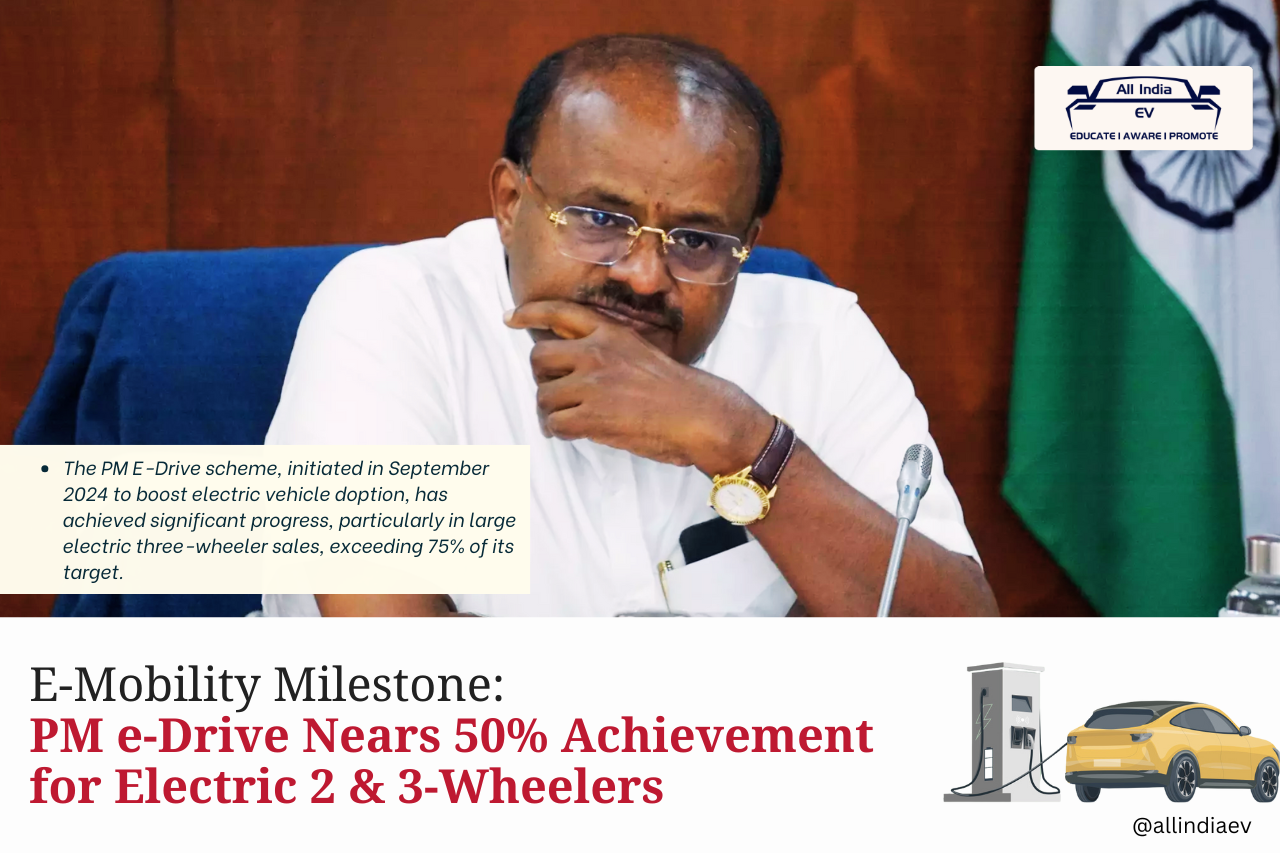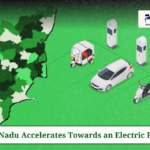
PM E-Drive Hits 75% EV Target for 3-Wheelers Since Sept 2024 Launch; Kumaraswamy Highlights Strong Progress in India’s E-Mobility Push.
The PM E-Drive scheme, launched in September 2024 to fast-track the adoption of electric mobility across India, has crossed the halfway mark in meeting its targets for electric two- and three-wheelers, according to Union Minister for Steel and Heavy Industries HD Kumaraswamy.
Speaking to The Economic Times, Kumaraswamy revealed that nearly 48% of the target for electric two-wheeler sales has already been achieved, with over 11.98 lakh units sold as of May 30, 2025. In the electric three-wheeler segment, progress has been even more significant. “More than 1.55 lakh units have been sold—75% of the segment’s target,” the minister stated.
The PM E-Drive scheme, which will run till March 2026, is being closely monitored and periodically reviewed to ensure effective implementation and resolve operational challenges.
However, e-rickshaws and e-carts under the scheme have seen sluggish progress, achieving just 2% of the set target—with only 2,736 units sold. The ministry is reportedly examining this lag and working on corrective strategies.
✅ E-Bus Push Underway
On the public transport front, Kumaraswamy shared updates on the electric bus rollout, which is a critical part of the scheme. So far, 10,900 e-buses have been approved for deployment across Karnataka, Delhi, Telangana, and Gujarat. An additional 1,000 e-buses have been requested by Pune, with tenders expected to be floated by Convergence Energy Services Limited (CESL) this week.
The PM E-Drive scheme has earmarked ₹4,391 crore for deploying 14,028 e-buses in nine key urban centers. A payment security mechanism, including a Direct Debit Mandate (DDM) with the Reserve Bank of India (RBI), has been introduced to ensure timely payments to suppliers.
“Karnataka, Telangana, and Gujarat have signed the DDM, and Delhi has agreed to it,” Kumaraswamy confirmed. This mechanism allows the RBI to directly debit state accounts in case of payment delays, ensuring financial reliability for e-bus manufacturers and operators.
According to the minister, total demand from cities has reached 14,400 e-buses, with Phase I allocations covering 10,900 units. Discussions are underway with remaining states for additional deployments under Phase II.
✅ BHEL Performance Under Scrutiny
The minister also addressed performance concerns around Bharat Heavy Electricals Limited (BHEL), a central PSU under his ministry. While BHEL currently benefits from increased orders due to thermal power capacity expansion, it has historically struggled with project timelines.
“New vendor-friendly initiatives are being introduced to streamline processes and improve delivery,” Kumaraswamy said. “This includes inviting broader participation to meet rising demands in materials and skilled manpower.”As India advances its EV mission, the PM E-Drive scheme is emerging as a pivotal component of the country’s sustainable mobility agenda—marking clear progress while also highlighting the areas that need urgent attention.










